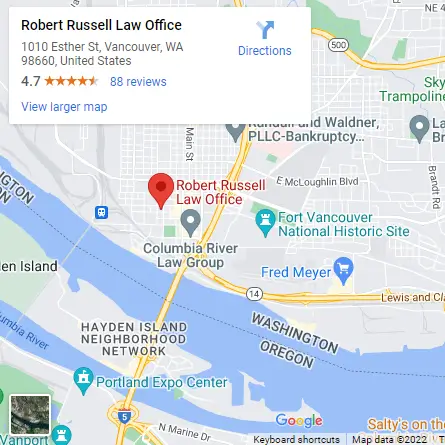Why Is Having a Good Credit Score Important?
Having bad credit can make life difficult when you need a new car, want to buy a house, or need to finance any other purchase. Having good credit provides financial security and freedom. It also costs you less to use credit, because you’ll usually receive a lower interest rate.
How Does Bankruptcy Affect My Credit Score?
A credit score is a number that’s used to summarize your credit history and describe/score your creditworthiness. Creditors look at a buyer’s score to decide whether your loan should be granted and what interest rate you’ll be charged for.
How a bankruptcy filing affects your credit score depends on what your score is before filing. If you filed bankruptcy while your credit score is already in the tank, it’ll likely take a dip rather than a huge plunge. However, debtors who have a good credit standing might expect to see a larger drop. However, debtors with a higher score prior to filing might expect their scores to rebound faster and higher as soon the filing event is 12-24 months in the past.
How We Can Help You Raise Your Credit Score
You might be surprised to learn that after bankruptcy, you can improve your credit score in as quickly as 12-24 months!
For example, if you had the following types of accounts, your credit score could be about 500 (which is not fantastic):
- 3 installment accounts, with a $360K balance, and $2,600/mo payments
- 7 revolving accounts, with $69K balance, and $1,700/mo payment
- 7 past-due accounts
In as little as 12 months after filing Chapter 7, your credit score might be as high as 662! That’s a 162 point increase! How is that possible? Because bankruptcy gets rid of certain factors that decrease your credit score. Once they are gone and you have shown good post-bankruptcy credit, then your score can increase!
Yes, you will be able to obtain a credit card after filing.
Yes, you can obtain a home loan after filing.
Yes, you can obtain a vehicle loan after filing.
Filing bankruptcy itself is not initially great for your credit score. But it does allow you to build back better than ever.
How does bankruptcy affect my credit score?
A credit score is a number that’s used to summarize your credit history and describe your creditworthiness. Creditors look at a buyer’s score to decide whether your loan should be granted and what interest rate you’ll be charged for.
How a bankruptcy filing affects your credit score depends on what your score is before filing. If you filed bankruptcy while your credit score is already in the tank, it’ll likely take a dip rather than a huge plunge. However, debtors who have a good credit standing are the ones most affected by filing a bankruptcy. You can lose anywhere around 100 to 200 points on your score, and a bankruptcy declaration stays on your record for up to 10 years.
How Can I Rebuild My Credit After Bankruptcy?
After receiving your bankruptcy discharge, you can start rebuilding your credit. Here are a few things you can do to improve your credit score.
Correct credit reporting errors
After getting your debts discharged in bankruptcy, you should make sure that these are reflected in your credit report. You can request a free copy of your three major credit reports and verify that all your discharged debts show up as “discharged” with zero balance dues. You should also do this from time to time to ensure that your financial affairs remain accurate in your report. If you see any errors, we can help you correct them. Errors not corrected in a timely fashion may mean that the creditor reporting agencies and/or creditor might now owe you money!
Get a credit card
Getting a credit card is a good way to rebuild your credit after filing bankruptcy. Credit cards can either be secured or unsecured. A secured credit card requires a deposit that will be applied to your balance due if you fail to make payments, while an unsecured credit card has no deposit required. Paying off your credit card on time helps establish your creditworthiness and can help you get loans for buying a home or purchasing a car later on.
How do I know if bankruptcy right is for me?
At Robert Russell Law Office, we are committed to providing each and every one of our clients with compassionate and trusted representation at reasonable fees. We know that every case is different, which is why we review your situation and discuss both your bankruptcy and non-bankruptcy options with you.
If you’re considering bankruptcy as a debt relief option, contact our office today so we can help you make an informed decision for your financial future.


